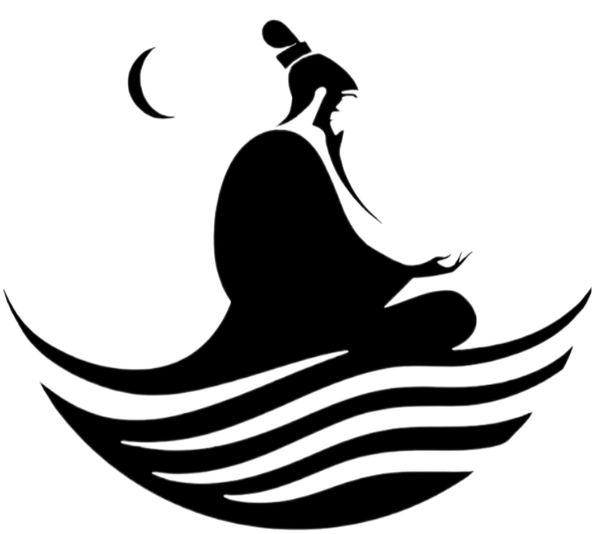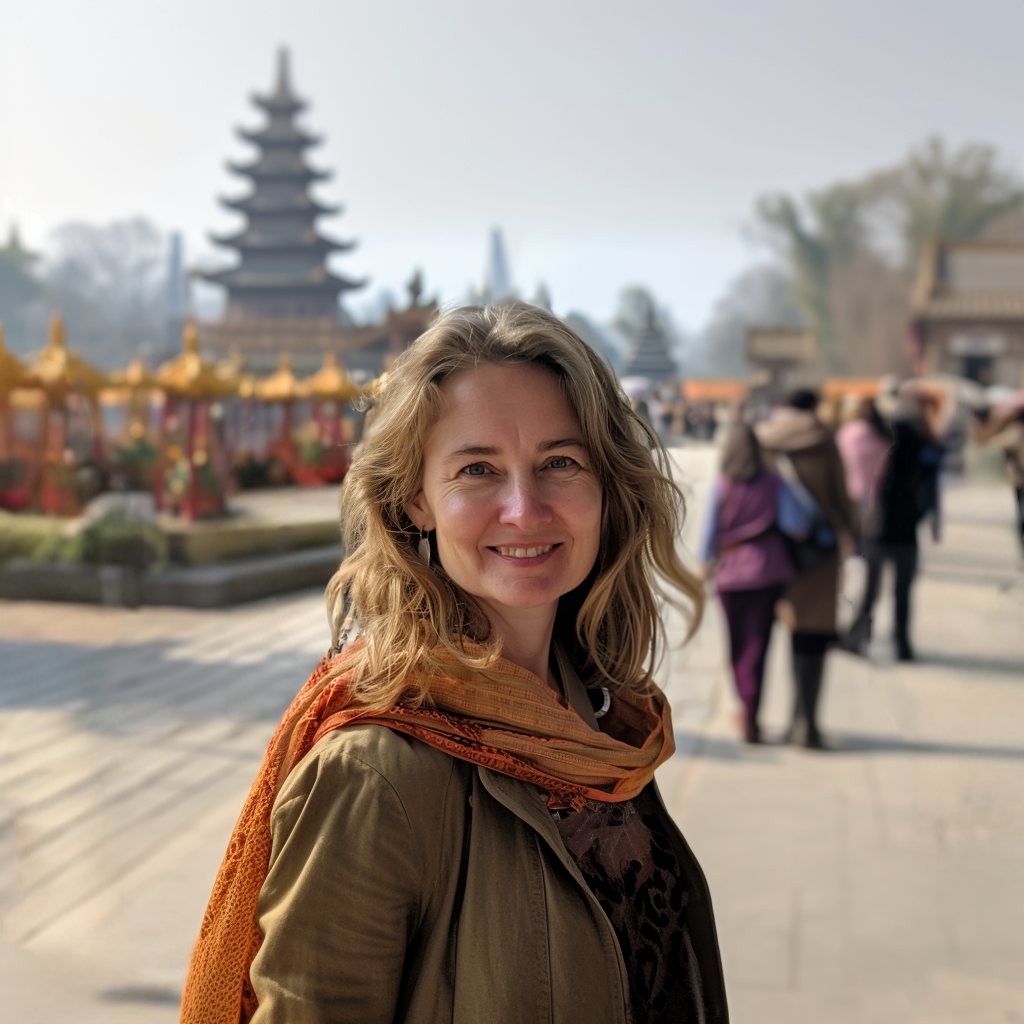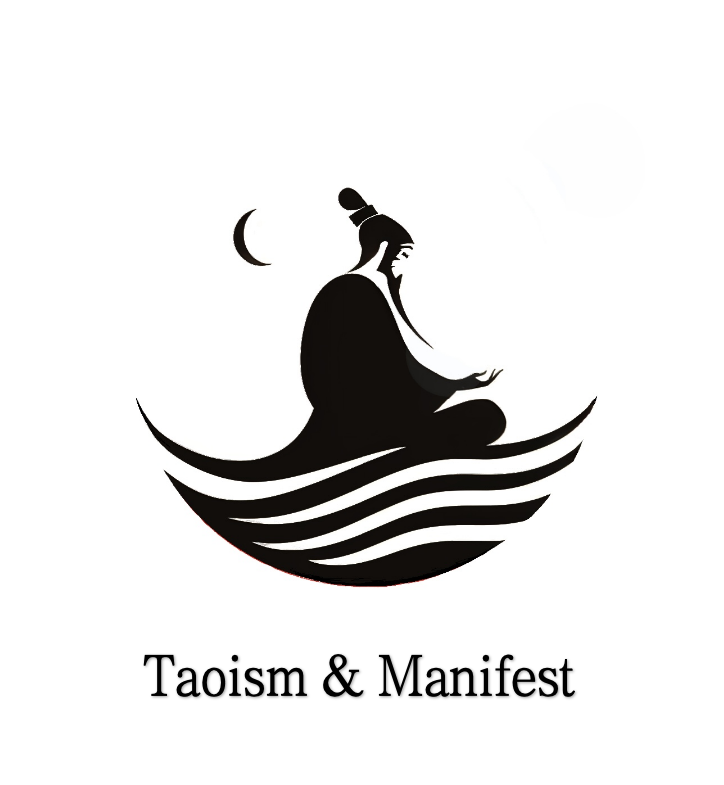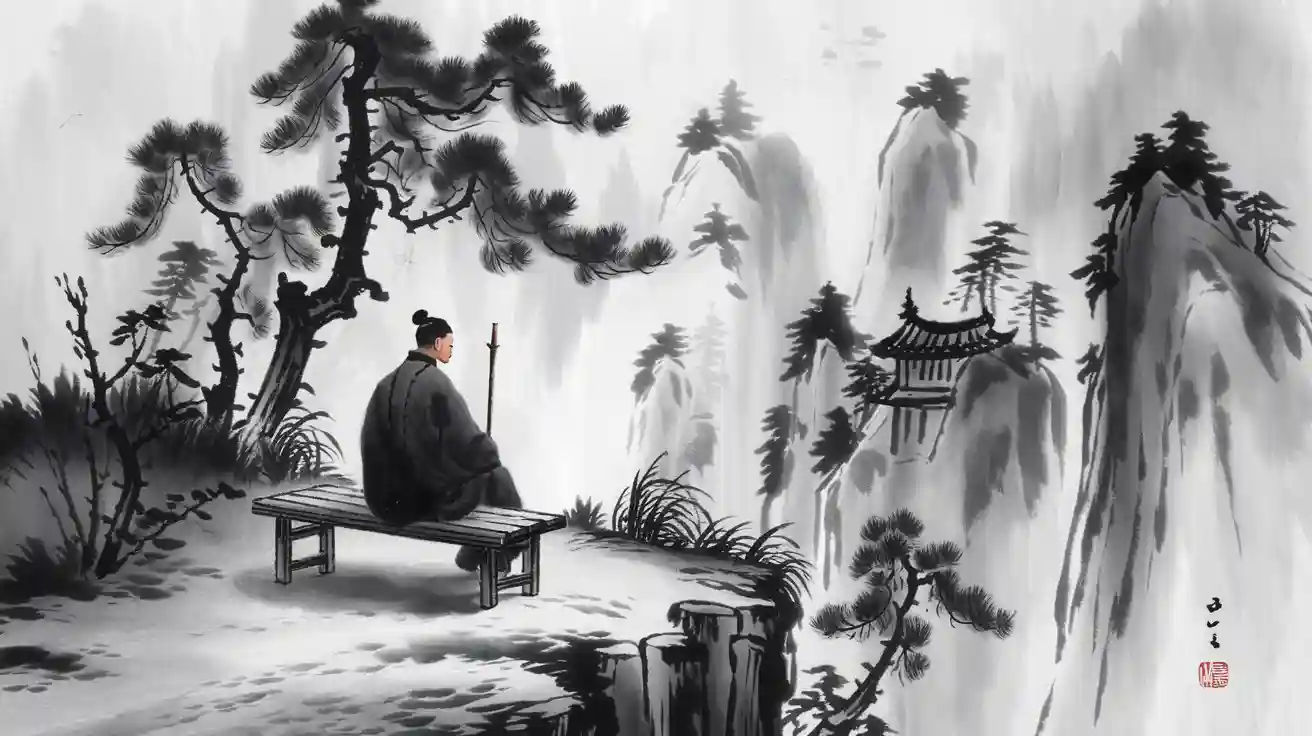
Many people see seclusion in taoism as running away from the world. This view misses the real meaning. In taoism, seclusion is an inner retreat. A Taoist priest uses this time to connect deeply with the Tao. He does not escape life. Instead, he seeks peace and understanding within himself. The practice of seclusion helps him find balance and wisdom.
Key Takeaways
Taoist priests pick seclusion to grow inside and find peace. They do not hide from life. Seclusion lets priests live close to nature. They follow nature’s flow for balance and health. Inner retreat means looking inside to connect with the Tao. This helps renew their spirit. They use meditation, qigong, and simple living in seclusion. These practices make their spiritual powers stronger. Seclusion is a choice to gain wisdom and grow. It is not a way to run from problems or daily life.
Why Seclusion
Spiritual Practice
Seclusion happens because Taoist priests want to grow spiritually. Most do not try to hide from the world. They follow Taoist ideas and look for quiet places. These calm spots help them work on self-control and spiritual growth. The priest tries to live with the Tao and let go of his ego. He does not hold on to things. This helps him enjoy every moment. When he leaves behind daily noise, he finds a faster way to spiritual freedom. Taoist teachings call this the “easy way.” Here, wisdom leads the way instead of struggle. The priest wants to be free from karma by letting it go, not fighting it. This helps him move closer to spiritual awakening.
Harmony with Nature
Taoism says living with nature brings peace and balance. Taoist books talk about being simple and happy. A priest may choose seclusion to follow nature’s cycles. He uses “Wu Wei,” which means acting with nature and not forcing things. Stories about Lao Tzu and other wise people show that leaving society for the mountains helps them follow the Tao. By living simply and not being greedy, the priest grows in spirit and morals. Seclusion lets him feel nature’s rhythm, which brings more balance and health.
Avoiding Distractions
Modern life is full of noise and stress. Taoist priests often go into seclusion to get away from these things. In a quiet place, a priest can meditate and think without being bothered. This helps him keep his mind on his spiritual work. Old records show some priests lived in the mountains, far from others, to grow spiritually. By leaving the busy world, the priest makes room for peace and clear thoughts.
Seclusion in Taoism
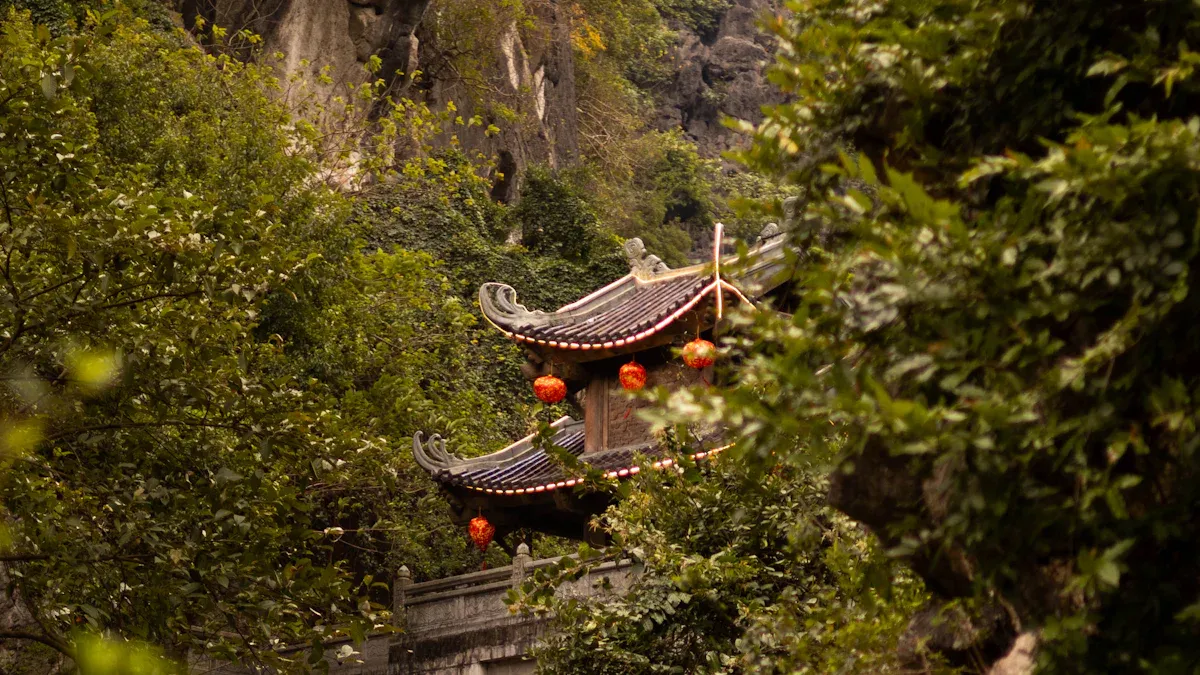
Inner Retreat
Taoist priests often talk about seclusion as an inner retreat. This idea, called "nei yin" in Chinese, means turning attention away from the outside world and looking inside. Many people think seclusion is just hiding from problems, but in taoism, it is much more. A taoist priest chooses seclusion to find a deep link with the Tao. He does not run away from life. Instead, he creates a quiet space in his mind. This space helps him let go of extra thoughts and worries. He learns to forget himself and become open to new ideas. In this state, he feels alert and relaxed at the same time. He can accept change and find balance. The inner retreat gives him a chance to renew his spirit and grow his spiritual powers.
Note: Taoist scholars say that inner retreat is not escapism. It is a conscious choice to live simply and find peace. They believe that true happiness comes from understanding the Tao, not from running away from the world.
Connection with the Tao
Seclusion helps a taoist priest connect with the Tao. The Tao is the natural way of the universe. By stepping back from busy life, the priest can listen to nature and feel its rhythm. He lives in harmony with the seasons and the land. He may rise with the sun and meditate under the stars. This simple life brings him closer to the Tao. He learns to act without forcing things, a practice called "wu wei." The priest finds joy in small things and lets go of outside desires. This connection with the Tao gives him spiritual powers like peace, wisdom, and balance. He feels part of something bigger than himself. His spiritual journey becomes richer and more meaningful.
Taoism teaches that retreat is a state of mind, not just a place. The priest can feel close to the Tao even if he is not far from others.
The focus on inner life and personal growth sets taoist seclusion apart from other traditions. Taoist priests value harmony, health, and natural living over strict rules.
Practices like Meditation
During seclusion, taoist priests use many practices to build their spiritual powers. Meditation is one of the most important. The priest sits quietly and lets his mind settle. He pays attention to his breath and lets thoughts come and go. This helps him stay calm and focused. He also practices qigong and tai chi. These gentle movements help his energy flow and keep his body healthy. The priest may walk in the forest or spend time by a stream. Nature helps him clear his mind and feel at peace. He learns to live simply and avoid distractions. These practices make his spiritual powers stronger. He becomes more aware, balanced, and connected to the Tao.
Taoist priests often teach by example. They show others how to live in harmony with nature and grow their spiritual powers.
Seclusion gives them the space to learn, heal, and share their wisdom when the time is right.
Seclusion or Escape?
Intentional Withdrawal
Some people think a taoist priest hides from problems. But choosing seclusion is a careful choice. The priest leaves daily life to grow spiritually. He is not running away from the world. He makes time to think and learn about himself. Being alone helps him hear his inner voice. He connects with the natural flow of life. He learns to accept change and finds peace in quiet. The choice to withdraw is not because of fear. It is about looking for a deeper spiritual path.
Choice and Circumstance
Not all taoist priests live alone. Some stay in society and practice their beliefs with others. Taoist philosophy says both ways are good. A priest might choose seclusion for personal reasons. He may want spiritual clarity. Sometimes, life leads him to a quiet place. Other times, he feels he should help the community. Taoism values freedom and being natural. Each person can pick what suits them best. The main thing is to follow the Tao and be open to change.
Taoist Perspective
Taoist texts talk about balancing seclusion and social duty. Lao Tzu said withdrawal can protect from noise and corruption. But he knew not everyone needs to leave the world. Taoism supports simple living anywhere. It can be in the mountains or a busy town. The key is to be in harmony with the Tao. When a priest acts with nature, wisdom grows. He does not force himself to fit one way. He lets his spiritual journey happen naturally. This helps him find joy and meaning wherever he lives.
Misconceptions
Public Views
Many people think seclusion means a priest wants to run away from problems. Some believe that taoist priests hide in the mountains because they cannot handle daily life. This idea is common in movies and stories. People often see a priest living alone and think he feels lonely or afraid. They may say he escapes from society because he does not want to face stress or hard work. Some even think seclusion is a sign of weakness. These views do not show the true meaning of seclusion in Taoism.
People sometimes forget that seclusion can be a choice for growth, not just a way to avoid trouble.
Taoist Priests' Views
Taoist priests see seclusion in a very different way. For them, it is not about running away. A priest chooses to live simply so he can focus on his spiritual path. He often moves to the mountains or quiet places to find peace and connect with nature. The priest uses this time to meditate, practice qigong, and study Taoist texts. He believes that quiet living helps him reach a higher state of mind. Many taoist priests, especially those in the Quanzhen order, describe their seclusion as a step toward becoming xian, or immortal beings. This shows that their withdrawal is not just for isolation. The priest sees it as a deep and meaningful journey. He wants to transform himself and get closer to the Tao. Seclusion, for the priest, is a way to find wisdom, balance, and true happiness.
Taoist priests understand that real peace comes from inside. They use seclusion to grow stronger, not to escape the world.
Seclusion in Taoism is about looking inside yourself. Taoist books say the Tao is hidden and mysterious. The Tao gives life and order to all things. A Taoist priest follows this path by turning inward. He does not run away from life.
Seclusion lets people live in harmony with nature. It helps them focus on health and self-control.
Quiet and simple living help with deep meditation and growth.
You do not need to be in a temple to learn from Taoist seclusion. Anyone can look for balance and peace every day.
Real seclusion means finding happiness inside yourself, not running away from the world.
FAQ
What does seclusion mean for a Taoist priest?
Seclusion means a Taoist priest chooses a quiet place to focus on spiritual growth. He uses this time to meditate, practice qigong, and connect with the Tao. He does not hide from problems.
Can anyone practice Taoist seclusion?
Anyone can try Taoist seclusion. People do not need to become priests. They can find a peaceful spot, spend time in nature, and practice meditation. Simple living helps everyone find balance and peace.
Does seclusion help with understanding life and death?
Seclusion gives a Taoist priest time to think about big questions. He reflects on life and death. This helps him accept change and find peace inside himself.
Is seclusion always about living in the mountains?
Seclusion does not always mean living far away. Some Taoist priests stay in towns or villages. They create quiet spaces in their daily lives. The main goal is to find inner peace.
Why do people think seclusion is an escape?
Many people see seclusion as running away from stress. Taoist priests see it differently. They use seclusion to grow stronger and wiser. They choose it to connect with the Tao, not to avoid life.
